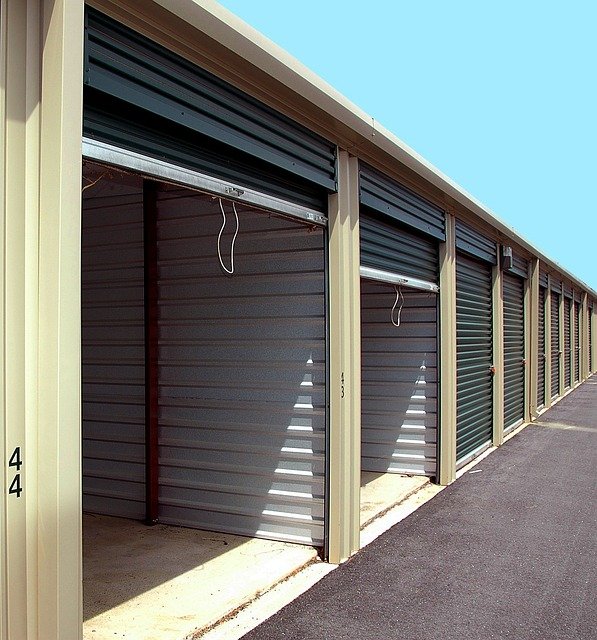Sustainable Modular and Container Homes in the United Kingdom in 2025: Innovative Eco-Friendly Off-Grid Designs
In 2025, sustainable modular and container homes represent a cutting-edge approach to eco-friendly housing in the United Kingdom, offering innovative solutions that reduce environmental impact, lower construction waste, and provide affordable, adaptable living spaces for diverse communities.

What Are Sustainable Modular and Container Homes?
Sustainable modular homes are prefabricated dwellings constructed in factory settings and assembled onsite, often made with durable steel and equipped for off-grid living. Container homes, specifically, adapt repurposed shipping containers into comfortable, stylish residences with robust steel structures ideal for sustainability and longevity. Both approaches support eco-friendly living by reducing construction waste, accelerating build times, and integrating renewable energy and water-saving systems.
Innovative Off-Grid Modular Units for UK Living
Gateway Modular’s Offerings
Gateway Modular, a UK provider based in Hull, delivers prefabricated steel modular units designed for remote and off-grid living. These units provide self-contained housing solutions intended to reduce dependency on mains utilities. Key features include:
- Integrated renewable energy: Solar panels with optional wind turbines and battery storage designed to support energy needs.
- Internet connectivity: Each unit can be equipped with Starlink satellite broadband to provide internet in isolated locations.
- EV charging points: Supporting electric vehicles in line with sustainable transport options.
- Durability standards: Construction follows BS EN 1090 structural steelwork standards and ISO 9001 quality management protocols to meet UK climate conditions.
- Customisable interiors: Layouts can be designed around personal needs.
- Minimal groundwork: Units require flat, stable bases or simple pad foundations to reduce site preparation.
- Nationwide delivery and installation: Offered across the UK.
Warranty and safety certifications are provided according to company policies.
Building Sustainable Off-Grid Container Homes
Transforming shipping containers into eco-friendly off-grid homes is gaining interest due to their durability and sustainability potential.
Planning and Design Essentials
- Container selection: Common sizes include 20-foot and 40-foot containers. ‘One-trip’ containers (newer, with minimal wear) can reduce repair requirements.
- Insulation: Steel containers require insulation to address temperature extremes in the UK. Options include spray foam, rigid foam boards, or fibreglass batts, with vapor barriers used in humid environments.
- Water and waste management: Off-grid setups typically include rainwater harvesting with filtration, greywater recycling, composting toilets, and insulated plumbing to prevent freezing.
- Energy systems: Solar arrays complemented by battery storage and sometimes wind turbines enable sustainable, year-round power.
- Site preparation: Location choices consider solar exposure, water proximity, and compliance with planning regulations. Foundations may use concrete piers, slabs, or gravel bases, with deeper footings in frost-prone zones.
Interior and Comfort Design
Efficient use of interior space is achieved with multi-purpose furniture, open layouts, and strategic room placement. Ventilation systems help maintain air quality and temperature, while finishes like wood cladding and laminate flooring enhance comfort and aesthetics.
Karmod’s Modular Container Homes in the UK Market
Karmod offers customizable container homes designed to UK standards, focusing on sustainability, style, and functionality:
- Affordability: Basic units start around £20,000.
- Modular adaptability: Homes can be expanded or downsized as needed.
- Energy efficiency: Energy-saving materials and systems help reduce environmental impact.
- Custom interiors: Layout personalization with smart storage, multifunctional furniture, and eco-friendly finishes.
- Compliance support: Assistance through UK planning permissions and building codes is provided.
- Quick assembly: Prefabricated components reduce onsite construction time.
Karmod supports clients throughout design, building, and regulatory processes.
Costs, Requirements and Considerations
Costs
- Basic container homes can start around £20,000.
- Customized or larger modular homes may cost £75,000 or more.
- Adding off-grid systems such as solar panels, wind turbines, water filtration, and battery storage increases expenses.
- Reduced site preparation can lower costs compared to traditional builds.
Eligibility & Regulations
- Any interested party can build or purchase modular or container homes but must comply with local planning permissions and UK building codes.
- Applications typically require plans demonstrating compliance with land use, safety, and environmental standards.
- Providers like Gateway Modular and Karmod offer guidance to navigate regulatory requirements.
Maintenance
- Steel modular and container homes generally require minimal maintenance due to durable construction.
- Off-grid systems like solar panels and batteries need periodic inspection and servicing.
- Proper foundation and insulation are essential to withstand UK climate variations.
Benefits of Sustainable Modular and Container Homes
- Environmental impact: Repurposing shipping containers can reduce material waste and carbon emissions.
- Energy independence: Renewable energy systems help reduce utility reliance.
- Cost considerations: Faster build times and reduced site work may lower upfront costs.
- Flexibility: Modular construction allows customization and expansion.
- Versatility: Suitable for urban, rural, and remote locations.
- Connectivity: Satellite broadband can maintain communication needs.
Summary
In 2025, the United Kingdom continues to explore sustainable housing options through modular and container homes with eco-friendly, off-grid features. Companies such as Gateway Modular and Karmod provide prefabricated steel units with renewable energy integration, UK-standard construction, customizable designs, and regulatory support. These solutions offer various entry points, enhanced self-sufficiency, and simplified site preparation for those interested in sustainable living across the UK.
Sources
- Gateway Modular – Sustainable Off-Grid Modular Units
- How To Build a Shipping Container for Off-Grid Living
- Karmod Container Homes in the United Kingdom
Disclaimer: All content, including text, graphics, images and information, contained on or available through this web site is for general information purposes only. The information and materials contained in these pages and the terms, conditions and descriptions that appear, are subject to change without notice.




